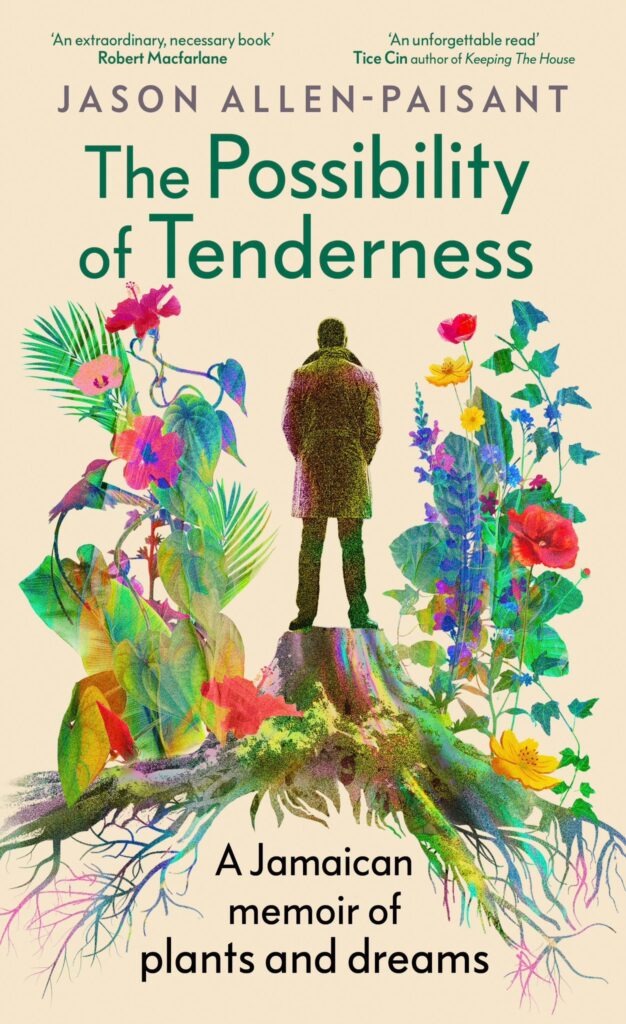The first work of non-fiction from the winner of the T. S. Eliot Prize – a fierce reclamation of a link with the land, roaming from Jamaican hills to the parks of Leeds.
The Possibility of Tenderness is a personal history narrated through the lens of the ‘grung’ and plants. It’s also a people’s history of the land, a family saga, an archival detective story through time. It’s the migration tale of a young scholar who arrives in Britain from rural Jamaica to study at Oxford to achieve ‘upward social mobility’ and who now lives in Roundhay, Leeds. Suddenly, amidst his journey of dreams and class aspiration, the plants and people of his native district, Coffee Grove, begin to offer different ways of living, alternative dreams, and the possibility of tenderness and the permission to roam England.
Marrying the local and the familial with global history and unfolding as a timely and immersive tale of land, environment, and the world of plants, The Possibility of Tenderness reveals how the history of a tiny rural village in a mountainous region of Jamaica is interlinked with that of modern Britain.
“The Possibility of Tenderness is an extraordinary, necessary book from a brilliant writer: a new song of the earth. It left me gripped, moved, fascinated, troubled and heartlifted. It rings and sings with curiosity and compassion; it sees with clear eyes and speaks with lucid, wise voice. ‘We are made of our environments’, Allen-Paisant writes deep in these remarkable pages, ‘They enter us, shape us and change us…But what happens when we do not allow the earth to get into us?’ These are the questions at the heart of his book: he answers them in a luminous and loving prose, attentive both to exclusion and reciprocity, always seeking to dream new possibilities of tenderness. It is a book that will be widely read and justly celebrated.” —Robert Macfarlane (author of MOUNTAINS OF THE MIND and UNDERLAND)

